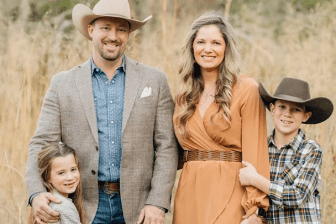A former University of Alberta professor is leading a research project examining the emotional well-being of healthcare professionals during the COVID-19 pandemic.

Jason Harley, a psychologist who is currently an assistant professor at McGill University’s Department of Surgery and a member of the university’s Institute for Health Sciences Education, said the goal of the research is to find ways to better support hospital-based physicians and nurses during this crisis.
READ MORE: Top N.Y.C. doctor on coronavirus ‘front lines’ dies by suicide
“There’s a lot of added stress, a lot of added factors associated with trying to rapidly and effectively adapt protocols — especially those in hospitals — to deal with COVID-19,” Harley said.
“In a time like this, where we need our healthcare professionals and we need them at their best, it’s important we do everything we can to support them.”
Harley said feelings of burnout and emotional exhaustion have been well-documented in healthcare professionals but this research is different because of the nature of the pandemic.

“It’s a very new type of disease that we’re dealing with. This is leading to, again, a lot of rapid protocol development and innovation that goes on in hospitals,” Harley said.
The aim of the research is to look at what currently exists in terms of personal sources of support, such as family and friends, institutional supports within a hospital as well as other methods of coping.
“What kinds of things are they trying to do to feel better? To deal with that stress and to avoid those many sources of stress turning into psychological distress,” Harley said.
There have been some instances of physicians in the United States on the front lines of the battle against the coronavirus dying by suicide.
“We have a crisis with regards to well-being. Of course when people are unable to manage the level of stress that’s unfolding or having a much greater time doing that, that opens the door to significant problems such as anxiety, depression, burnout and that can led, again, to quitting, even suicide.
“It’s really critical we’re able to identify what’s working right now in our system and how we can improve things,” Harley said.
READ MORE: 11 million Canadians could experience ‘high levels of stress’ due to COVID-19, Health Canada says
- Canadian man dies during Texas Ironman event. His widow wants answers as to why
- ‘Sciatica was gone’: hospital performs robot-assisted spinal surgery in Canadian first
- Canadians more likely to eat food past best-before date. What are the risks?
- Treatment from female doctors leads to lower death rates, study finds
Dr. Peter Brindley, a critical care physician at the University of Alberta Hospital, said COVID-19 has changed his day-to-day life at the hospital. He said he is doing well emotionally but knows there can be challenges.
“I know lots of staff have had tough times, and being in PPE and not being able to communicate as freely with each other or with patients is emotionally tough,” he said.
Brindley said this type of research is important.
“I don’t think we’re special as healthcare workers during all of this. I think we just have a special job,” he said.
Brindley said he has coped with the pandemic by leaning on family and friends as well as getting out in nature.
“On some level, with the risk of sounding stoic, you just have to decide: ‘I’m going to make it through this.’ One of the biggest things you learn is not just how to intensively care but how to intensively cope and it is part of the job,” he said.

The first portion of the research will focus on the McGill University Health Centre Hospital Network. Funding for that was provided by the McGill Interdisciplinary Initiative in Infection and Immunity and includes a research team of Drs. Montreuil, Lou, Feldman, Fried, Bhanji, Drouin and Lavoie-Tremblay.
Pending funding, a national survey could come to fruition in the next couple months.
If you’re interested in the research, you can reach out Harley at jason.harley@mcgill.ca.
If you or someone you know is in crisis and needs help, resources are available. In case of an emergency, please call 911 for immediate help.
The Canadian Association for Suicide Prevention, Depression Hurts, Kids Help Phone 1-800-668-6868, and the Trans Lifeline 1-877-330-6366 all offer ways of getting help if you, or someone you know, may be suffering from mental health issues.





Comments